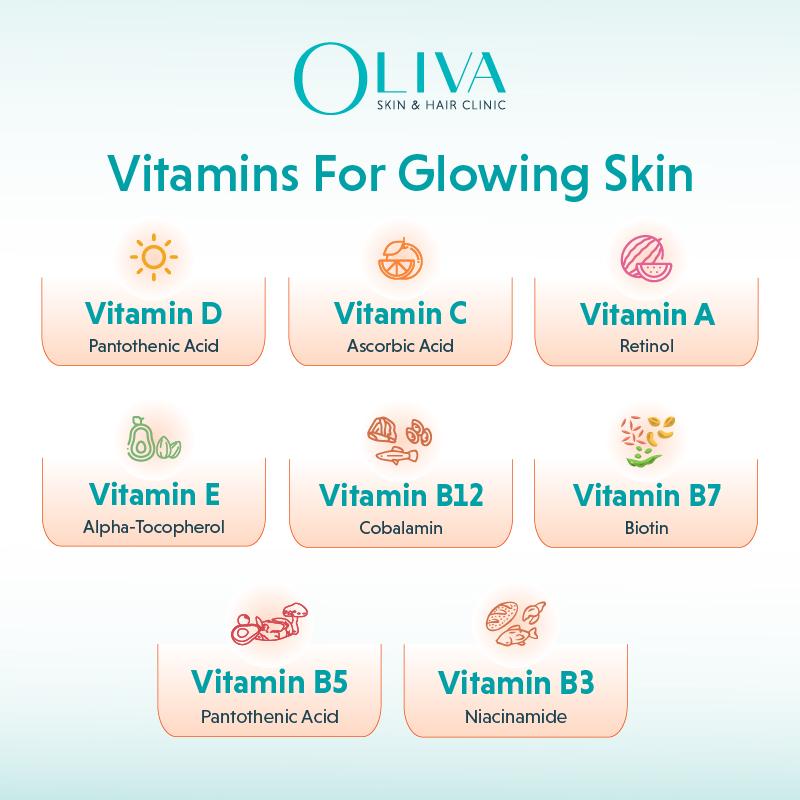Best Vitamins for Healthy and Glowing Skin
When it comes to achieving glowing and healthy skin, the right vitamins can make a big difference. While skincare products work on the surface, your skin also needs nourishment from within. At venzec-icu, we believe that a balanced diet rich in essential vitamins is one of the most effective ways to promote clear, radiant, and youthful-looking skin.
Why Vitamins Are Important for Skin
Your skin is the body’s largest organ, and it needs proper nutrition to stay healthy. Vitamins play a vital role in protecting against sun damage, boosting collagen production, fighting free radicals, and preventing premature aging. A deficiency in key vitamins can lead to dullness, dryness, breakouts, and even long-term damage. By including the right vitamins in your daily routine—either through food or supplements—you can support your skin’s health from the inside out.
Let’s explore the best vitamins for skin health and how they work.
1. Vitamin A – The Skin-Renewal Vitamin
Vitamin A is well-known in the skincare world, often found in retinol creams and serums. It helps increase cell turnover, reducing dullness and keeping skin smooth.
Benefits of Vitamin A for Skin:
-
Promotes faster healing of skin tissues
-
Reduces wrinkles and fine lines
-
Helps control oil production, preventing acne
-
Improves skin texture and tone
Sources of Vitamin A:
-
Carrots
-
Sweet potatoes
-
Spinach
-
Liver
-
Eggs
If you use topical Vitamin A (like retinoids), make sure to apply sunscreen during the day because it makes your skin more sensitive to the sun.
2. Vitamin C – The Brightening Vitamin
Vitamin C is a powerhouse antioxidant that brightens your complexion and protects against damage from pollution and UV rays. It is essential for collagen production, which keeps the skin firm and youthful.
Benefits of Vitamin C for Skin:
-
Reduces dark spots and pigmentation
-
Boosts collagen synthesis, reducing sagging
-
Provides strong antioxidant protection
-
Speeds up wound healing
Sources of Vitamin C:
-
Oranges and other citrus fruits
-
Strawberries
-
Kiwi
-
Papaya
-
Broccoli
You can take it as a supplement, include it in your diet, or apply Vitamin C serums directly to the skin for targeted results.
3. Vitamin E – The Moisturizing Vitamin
Vitamin E is often called the “skin vitamin” because of its powerful moisturizing and healing properties. It works as an antioxidant, fighting free radicals and protecting your skin from damage.
Benefits of Vitamin E for Skin:
-
Deeply hydrates and nourishes the skin
-
Helps reduce scars and stretch marks
-
Protects against UV damage
-
Reduces inflammation and redness
Sources of Vitamin E:
-
Almonds
-
Sunflower seeds
-
Avocados
-
Olive oil
-
Spinach
Vitamin E is also commonly used in skincare oils and creams to keep skin soft and supple.
4. Vitamin D – The Sunshine Vitamin
Vitamin D plays an essential role in skin repair and metabolism. Your body naturally produces it when exposed to sunlight, but many people have deficiencies due to limited sun exposure.
Benefits of Vitamin D for Skin:
-
Helps reduce inflammation
-
Supports wound healing
-
Strengthens skin barrier function
-
May help with skin conditions like eczema and psoriasis
Sources of Vitamin D:
-
Sunlight exposure
-
Fatty fish like salmon and mackerel
-
Fortified milk and cereals
-
Egg yolks
Since too much sun can damage skin, supplements are often recommended for maintaining Vitamin D levels.
5. Vitamin K – The Healing Vitamin
Vitamin K may not get as much attention as other vitamins, but it plays a key role in healing the skin and reducing common skin concerns.
Benefits of Vitamin K for Skin:
-
Helps with dark circles under the eyes
-
Reduces bruising and swelling
-
Speeds up healing after injuries or surgery
-
Supports healthy blood circulation in the skin
Sources of Vitamin K:
-
Kale
-
Spinach
-
Cabbage
-
Broccoli
-
Green beans
Vitamin K creams are sometimes prescribed by doctors to speed up skin recovery after medical treatments.
6. B Vitamins – The Energy Boost for Skin
The B-complex vitamins (B1, B2, B3, B5, B6, B7, B9, B12) are crucial for overall health, and many of them benefit the skin directly.
Benefits of B Vitamins for Skin:
-
Vitamin B3 (Niacinamide): Reduces redness, improves elasticity, and strengthens the skin barrier
-
Vitamin B5 (Pantothenic Acid): Provides deep hydration and helps with wound healing
-
Vitamin B7 (Biotin): Promotes stronger hair, nails, and skin health
-
Vitamin B12: Prevents hyperpigmentation and dullness
Sources of B Vitamins:
-
Whole grains
-
Eggs
-
Dairy products
-
Leafy greens
-
Fish and poultry
Niacinamide serums are very popular in skincare routines because of their calming and brightening effects.
How to Add These Vitamins to Your Routine
-
Eat a Balanced Diet – Focus on colorful fruits, vegetables, whole grains, lean protein, and healthy fats.
-
Use Supplements Wisely – If your diet lacks certain nutrients, supplements can fill the gap, but consult a doctor before starting.
-
Topical Skincare Products – Serums and creams with Vitamins A, C, E, and B3 can deliver targeted results.
-
Protect with Sunscreen – Even with vitamin support, protecting your skin from UV rays is essential.
Final Thoughts
Good skincare is more than just creams and serums—it starts with proper nutrition. Vit

